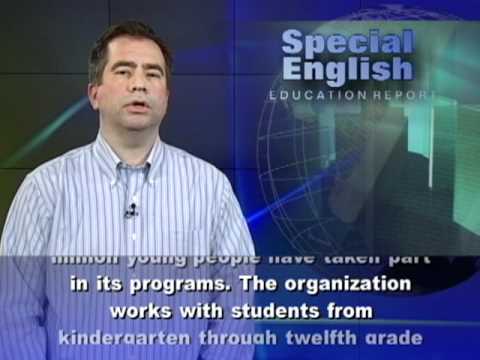Using National Parks as Classrooms
 |
This is the VOA Special English Education Report, from voaspecialenglish.com | facebook.com/voalearningenglish
The National Park Service in the United States will mark its one hundredth anniversary in twenty-sixteen. As it nears its second century, the Park Service plans to increase its educational programs for students and teachers. The plans include transportation support for one hundred thousand students each year to visit national parks to learn about nature and history. For example, Yellowstone is believed to have been the world's first national park when it was established in eighteen seventy-two. Other students will get a chance to see parks in faraway places through Skype and other online programs. The National Park Service also works with partners to provide education. One of its partners is a nonprofit organization called NatureBridge. NatureBridge is celebrating its fortieth anniversary and says one million young people have taken part in its programs. The organization works with students from kindergarten through twelfth grade and uses national parks as its classrooms. It provides field science programs at Yosemite National Park and four other locations in California and the northwestern state of Washington. Now, NatureBridge is launching an East Coast center with a four-million-dollar grant from Google. The program will begin in April at the Prince William Forest Park in Virginia. Students stay for three to five days in NatureBridge programs. The activities are aimed at developing their science skills. For example, they learn about different soils and study water quality under a microscope. Jason Morris is executive vice president of NatureBridge. He says when they are not sleeping, eating or in a laboratory, the students spend their time outdoors. Julia Washburn is associate director of education and interpretation for the National Park Service. She says in a time of budget cuts, the agency has to find ways to still meet its goals. "We are not likely to get a lot of money in this current economy. This is about doing different work with the money that we have and redirecting resources into it." Ms. Washburn says one of the most important services that the Park Service provides every day is nature interpretation. She says, "Interpretation is a form of informal education. So park rangers are interpreters. They orient you to the place you are in and help you make connections, emotional and intellectual connections, with the place." For VOA Special English, I'm Mario Ritter.
(Adapted from a radio program broadcast 01Mar2012)
|




